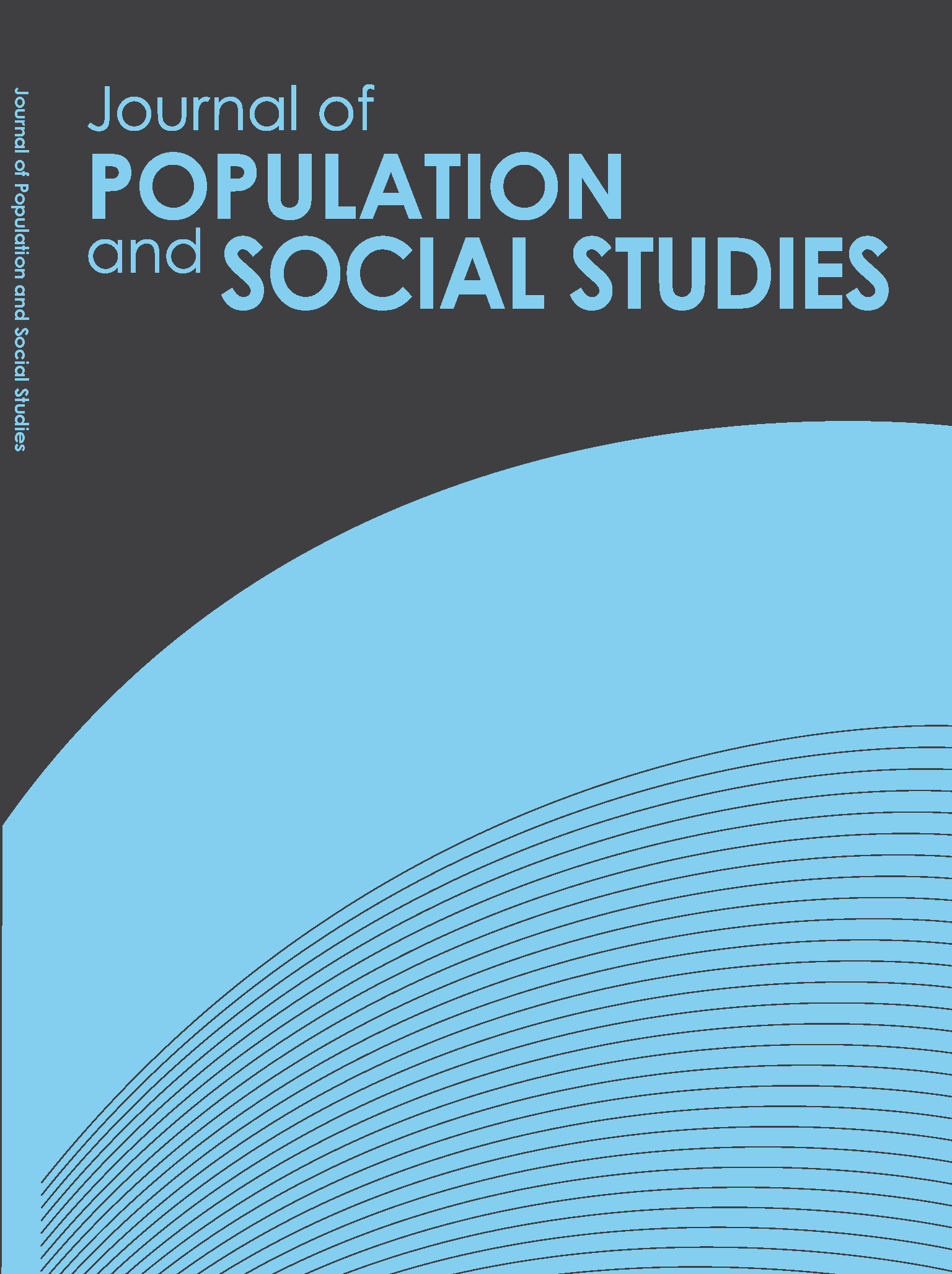Cultural Adaptation of Rice Production of a Thai Rural Village after the Implementation of the National Population Policy
Main Article Content
Abstract
The objective of this paper is to study the cultural adaptation of agriculture
production mode of Thai rural village to family planning policy resulting in low fertility rate below replacement fertility level.
The study uses data collected by qualitative method to study one rural village in North-Eastern region of Thailand. Result of the study shows that successful national family planning policy has resulted in small family size and reducing the size of labor force in the village. When such labor force migrates to other places for working, then agriculture production mode
dependant upon multi-generation labor is changing. Rice culture which is used to be main pole for villagers relationships, local wisdom transferring channel and local identity awareness has been effected then.
However, it is clear that Thai rural village adapts itself to the situation. There has been a change in production mode to use more technology on production and change of rice specie to compromise with amount of labor force existing in the family. Moreover, there has also been the renovation of many rice culture rites to do its sociocultural function for community existence.
production mode of Thai rural village to family planning policy resulting in low fertility rate below replacement fertility level.
The study uses data collected by qualitative method to study one rural village in North-Eastern region of Thailand. Result of the study shows that successful national family planning policy has resulted in small family size and reducing the size of labor force in the village. When such labor force migrates to other places for working, then agriculture production mode
dependant upon multi-generation labor is changing. Rice culture which is used to be main pole for villagers relationships, local wisdom transferring channel and local identity awareness has been effected then.
However, it is clear that Thai rural village adapts itself to the situation. There has been a change in production mode to use more technology on production and change of rice specie to compromise with amount of labor force existing in the family. Moreover, there has also been the renovation of many rice culture rites to do its sociocultural function for community existence.
Article Details
How to Cite
Kata, P. (2007). Cultural Adaptation of Rice Production of a Thai Rural Village after the Implementation of the National Population Policy. Journal of Population and Social Studies [JPSS], 15(1), 1–34. retrieved from https://so03.tci-thaijo.org/index.php/jpss/article/view/84590
Section
Research Articles


